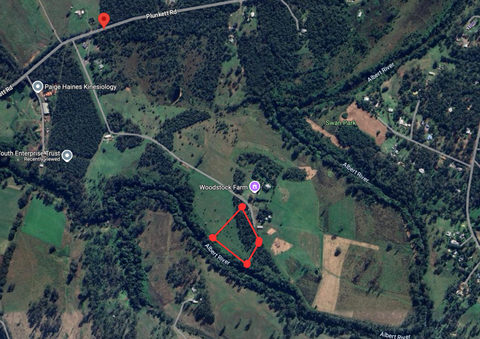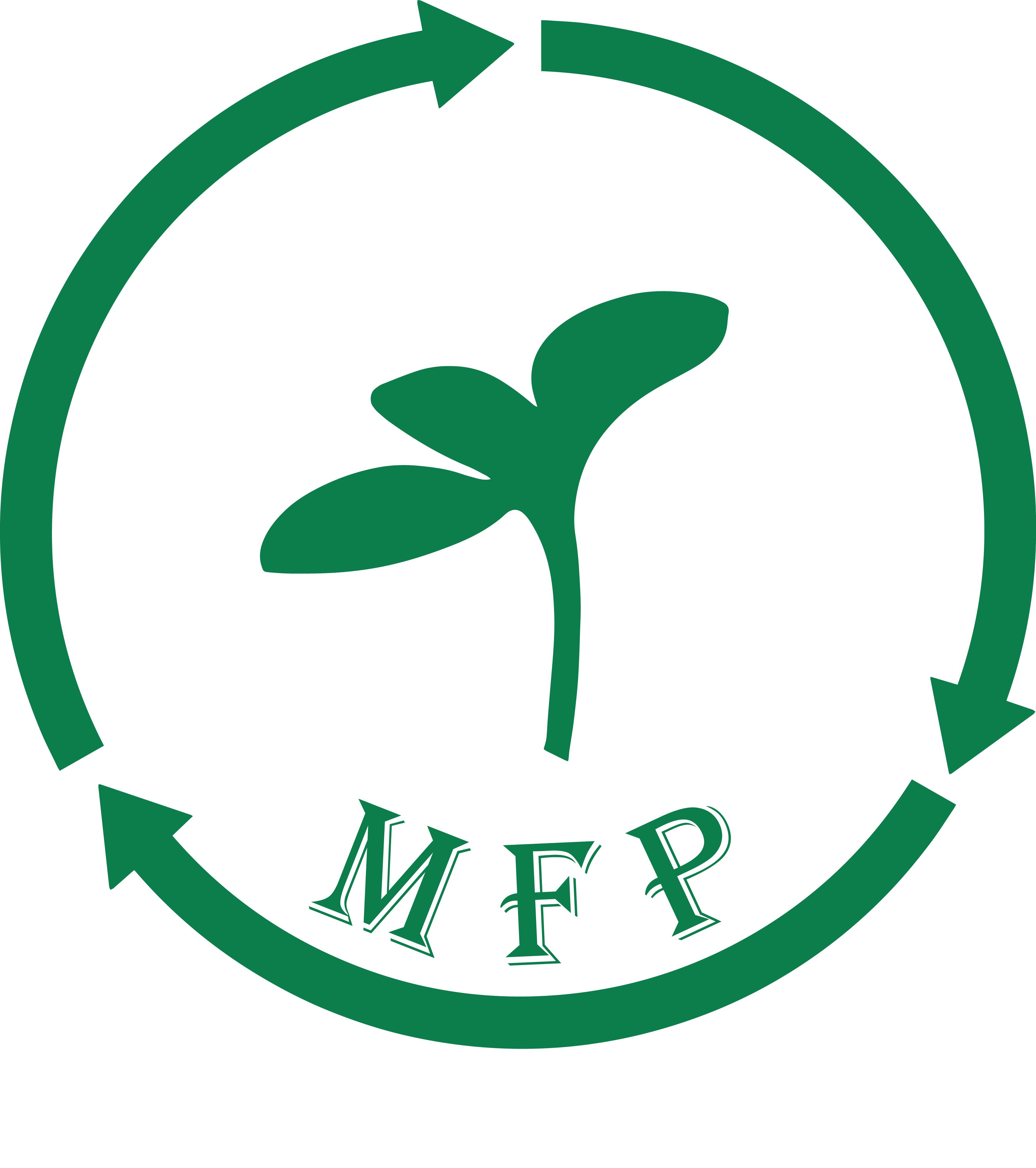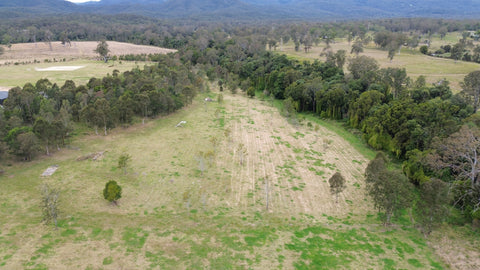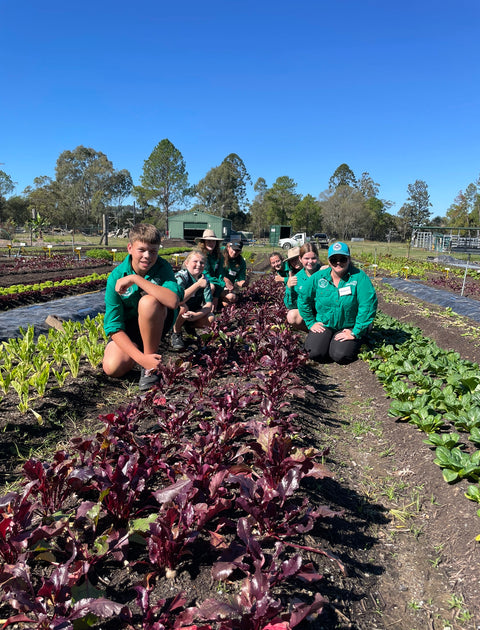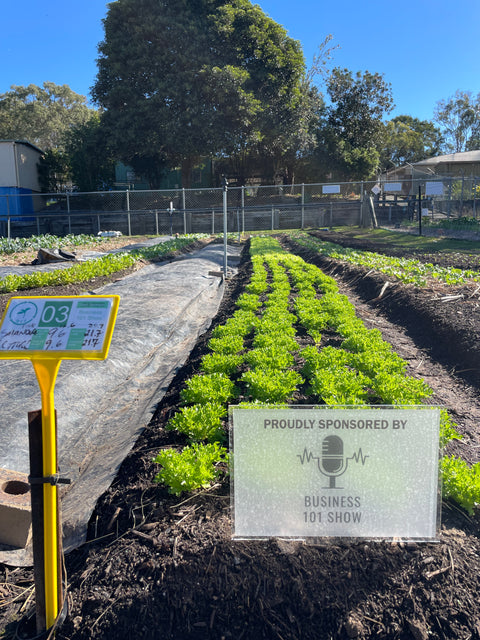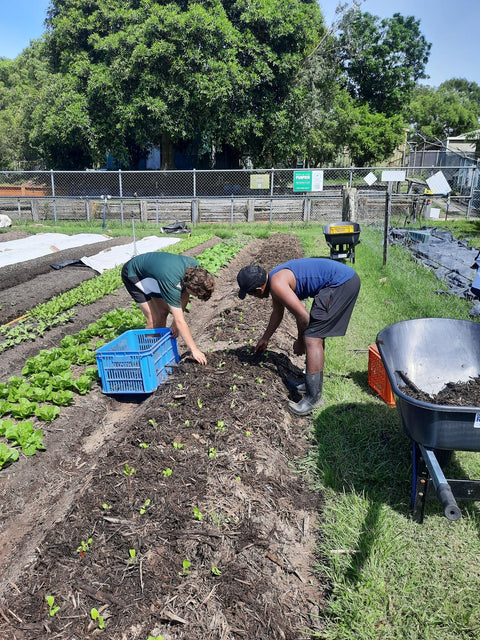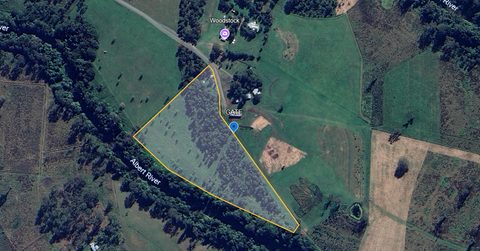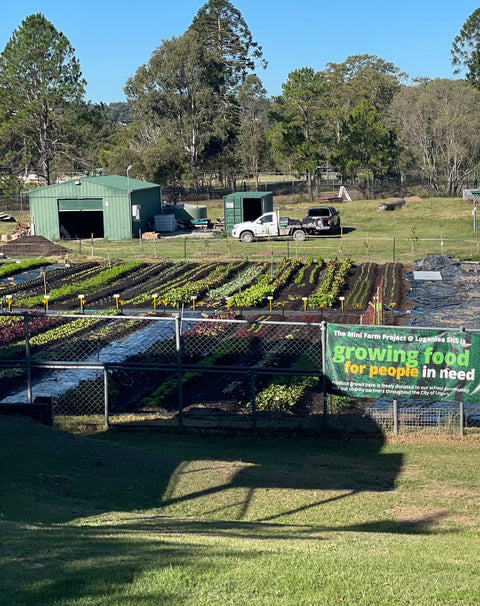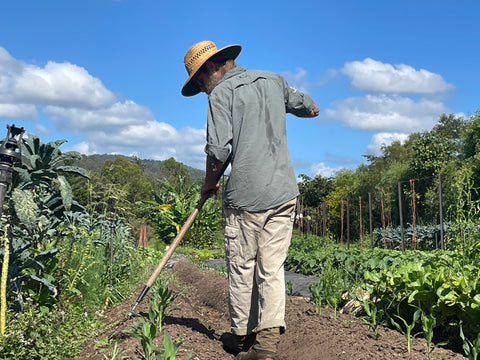WOODSTOCK
10 Acre Youth Training Charity Farm.
Who We Are
The Mini Farm Project Ltd is a Queensland based registered charity on a mission to eliminate food insecurity by building a network of charity farms.
These farms grow fresh produce and donate it to food relief agencies while creating jobs, providing accredited training for young people, and inclusive community programs.
The Problem We Face
Food insecurity remains a serious issue in Australia. In 2024 FoodBank reports, 32% of households (approx. 3.4 million) experienced moderate food insecurity, with nearly 2 million households (19%) facing severe food insecurity.
Meaning these households are skipping meals or going whole days without eating.
OzHarvest reports that:
- 77% of charities have seen rising demand
- 31% of those seeking help are doing so for the first time
- 72% of charities don’t have enough food
- 1,200 charities remain on the wait list for food support
This is a growing emergency impacting families and single parents, with
food relief charities stretched beyond capacity.
Our Planned Solution
We offer a long-term, community-led solution by building a decentralised farm network. These farms not only produce fresh, carbon-negative food using regenerative methods but also empower local communities through education, employment, and engagement.
Vision: A Queensland where no one goes hungry.
Mission: To create a scalable model of charity farming that fosters youth engagement, strengthens communities, provides food relief, and champions sustainable and regenerative agriculture.
By combining food relief with resilience-building initiatives, we aim to create lasting, systemic impact.
Woodstock
Purpose:
Produce up to 150,000 meals per acre per year in our Market Garden area.
Establish a youth training farm to empower young people with agricultural skills.
Provide fresh produce free of charge to local charities, directly addressing food insecurity.
Foster community engagement and sustainable practices through partnerships and educational programs.
Objectives:
Train up to 20 students every six months, providing them with hands-on experience and a Horticulture Certificate II.
Partner with local employers to create job opportunities for successful graduates.
Build a scalable and sustainable farm model to serve as a blueprint for future developments.
THE SOCIAL IMPACT
- Food Relief: Up to 150,000 meals per year for vulnerable families from our market garden area and more in our syntropic area.
- Youth Development: 40+ young people trained annually.
- Employment Creation: 4+ long-term jobs supported.
- Environmental Stewardship: Regenerative, carbon-neutral farm model.
- Community Inclusion: Workshops, eco-tours, NDIS programs.
- Cultural Enrichment: Bush food education and reconciliation programs.
SEEKING FUNDING
The Mini Farm Project will seek funding to cover:
- Infrastructure development (shipping containers, tools, equipment, irrigation systems).
- Staffing costs for full-time and casual farmers for 3 years of operation.
- Program materials for student training.
- Bore water drilling and pump.
- Access to 3 phase electricity.
Sponsor a Bed today and Help us Fund our Farm
ROAD MAP
Stage 1:
- Seek and receive funding to commence site
- Timeline: October to December 2025
Stage 2:
- Scope: Recruit operational team.
- Timeline: Start January 2026.
- Staffing: Employ 1 full-time farmer and 1 casual farmer.
- Output: Planning for site.
Stage 3:
- Scope: Develop a first acre and infrastructure.
- Timeline: February to April 2026.
- Staffing: Employ a second full-time farmer.
- Output: Full site prepared for development, first acre preparation for April Sow.
Stage 4:
- Scope: Sow first acre.
- Timeline: April 2026.
- Staffing: Employ a second casual farmer.
- Output: 140 beds of produce planted to produce over 50,000 meals
Stage 5:
- Scope: Develop remaining market garden acres.
- Timeline: May to June 2026.
- Output: Full Market Garden in production.
Stage 6:
- Scope: Develop Syntropic Farm area.
- Timeline: July to September 2026.
- Output: Expand farm sustainability and community impact.
Get in Bed with us!
Help us build the Woodstock Youth Training Farm and feed Australians in need.
For just $2,000 per bed (or from $50 a month), you can sponsor a garden bed and help us grow over 150,000 fresh meals for food relief each year — while training young people in horticulture, sustainability, and regenerative agriculture.
Your sponsorship directly funds seeds, soil, and training to turn one bed into a powerful tool for change.
Together, we can grow food, skills, and hope for our community.
👉 Sponsor a Bed Today
